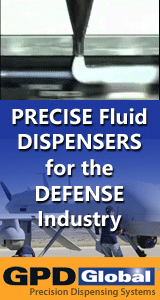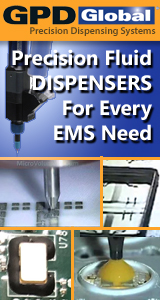[clipped] Chemistry of Hard and Soft Water From Anne Marie Helmenstine, Ph.D., Your Guide to Chemistry.
Water Works I'm sure you've heard the terms 'hard water' and 'soft water', but do you know what they mean? Is one type of water somehow better than the other? What type of water do you have? Let's take a look at the definitions of these terms and how they relate to water in everyday life.
Hard water is any water containing an appreciable quantity of dissolved minerals. Soft water is treated water in which the only cation (positively charged ion) is sodium. The minerals in water give it a characteristic taste. Some natural mineral waters are highly sought for their flavor and the health benefits they may confer. Soft water, on the other hand, may taste salty and may not be suitable for drinking.
If soft water tastes bad, then why might you use a water softener? The answer is that extremely hard water may shorten the life of plumbing and lessen the effectiveness of certain cleaning agents.
When hard water is heated, the carbonates precipitate out of solution, forming scale in pipes and tea kettles. In addition to narrowing and potentially clogging the pipes, scale prevents efficient heat transfer, so a water heater with scale will have to use a lot of energy to give you hot water. Soap is less effective in hard water because its reacts to form the calcium or magnesium salt of the organic acid of the soap. These salts are insoluble and form grayish soap scum, but no cleansing lather. Detergents, on the other hand, lather in both hard and soft water. Calcium and magnesium salts of the detergent's organic acids form, but these salts are soluble in water.
Hard water can be softened (have its minerals removed) by treating it with lime or by passing it over an ion exchange resin. The ion exchange resins are complex sodium salts. Water flows over the resin surface, dissolving the sodium. The calcium, magnesium, and other cations precipitate onto the resin surface. Sodium goes into the water, but the other cations stay with the resin. Very hard water will end up tasting saltier than water that had fewer dissolved minerals.
Most of the ions have been removed in soft water, but sodium and various anions (negatively charged ions) still remain. Water can be deionized by using a resin that replaces cations with hydrogen and anions with hydroxide. With this type of resin, the cations stick to the resin and the hydrogen and hydroxide that are released combine to form pure water. [clipped]
So, from this you can see that your soft water will leave sodium and other negatively charged residues on the board. These residues can form corrosive and conductive componds on the surface of the board that can result in failure of the circuit of the board.
reply »
![]() What is the difference in using soft water to do the cleanin...
- Jan 26, 2007
by
woodruff
What is the difference in using soft water to do the cleanin...
- Jan 26, 2007
by
woodruff
![]()
![]()
![]() [clipped]
Chemistry of Hard and Soft Water
From Anne Marie...
- Jan 27, 2007
by
davef
[clipped]
Chemistry of Hard and Soft Water
From Anne Marie...
- Jan 27, 2007
by
davef
![]()
![]()
![]() Davef, great !!! Many thanks
Regards.....GS
...
- Jan 27, 2007
by
Davef, great !!! Many thanks
Regards.....GS
...
- Jan 27, 2007
by
![]()
![]()
![]() Would distilled water be considered deionized? I know that i...
- Jan 31, 2007
by
Would distilled water be considered deionized? I know that i...
- Jan 31, 2007
by
![]()
![]() Distilled water is a perfectly adeqaute alternative to DI wa...
- Jan 31, 2007
by
davef
Distilled water is a perfectly adeqaute alternative to DI wa...
- Jan 31, 2007
by
davef
![]()
![]()
![]() Distilled water normally removes ions as well as dissolved s...
- Feb 01, 2007
by
Distilled water normally removes ions as well as dissolved s...
- Feb 01, 2007
by
![]()
![]() Remember, deionized water is very corosive. If the water is...
- Feb 05, 2007
by
Remember, deionized water is very corosive. If the water is...
- Feb 05, 2007
by








